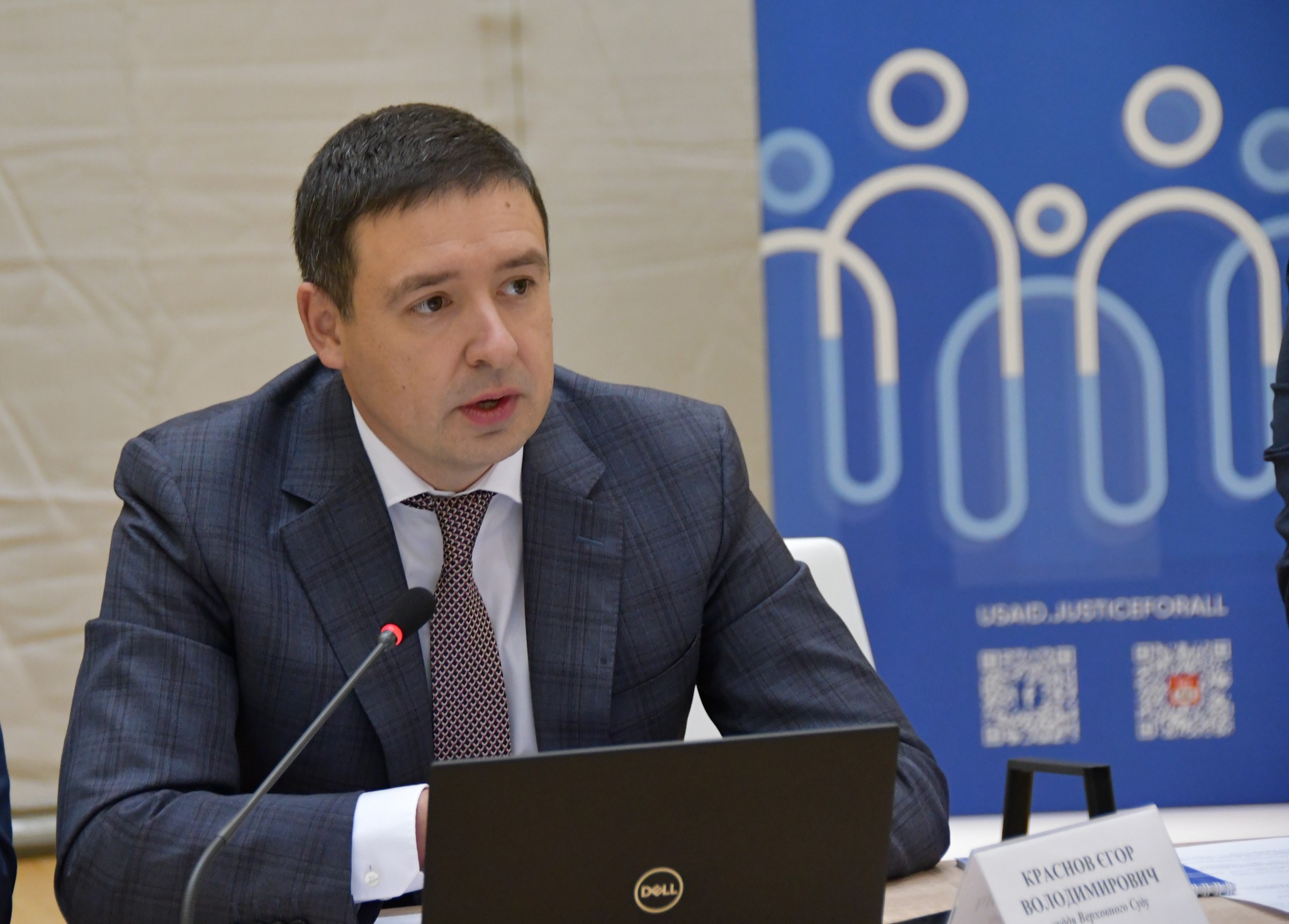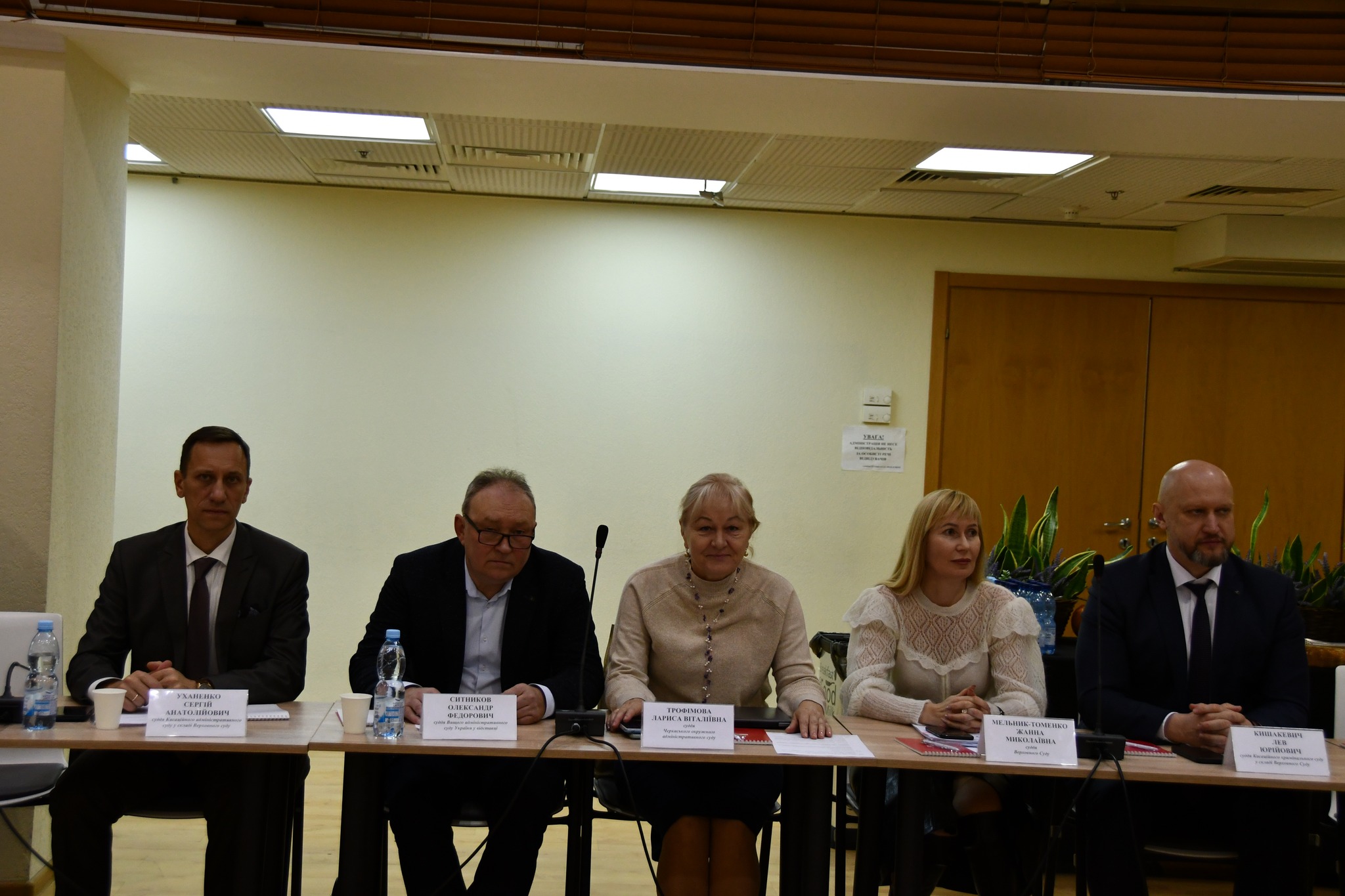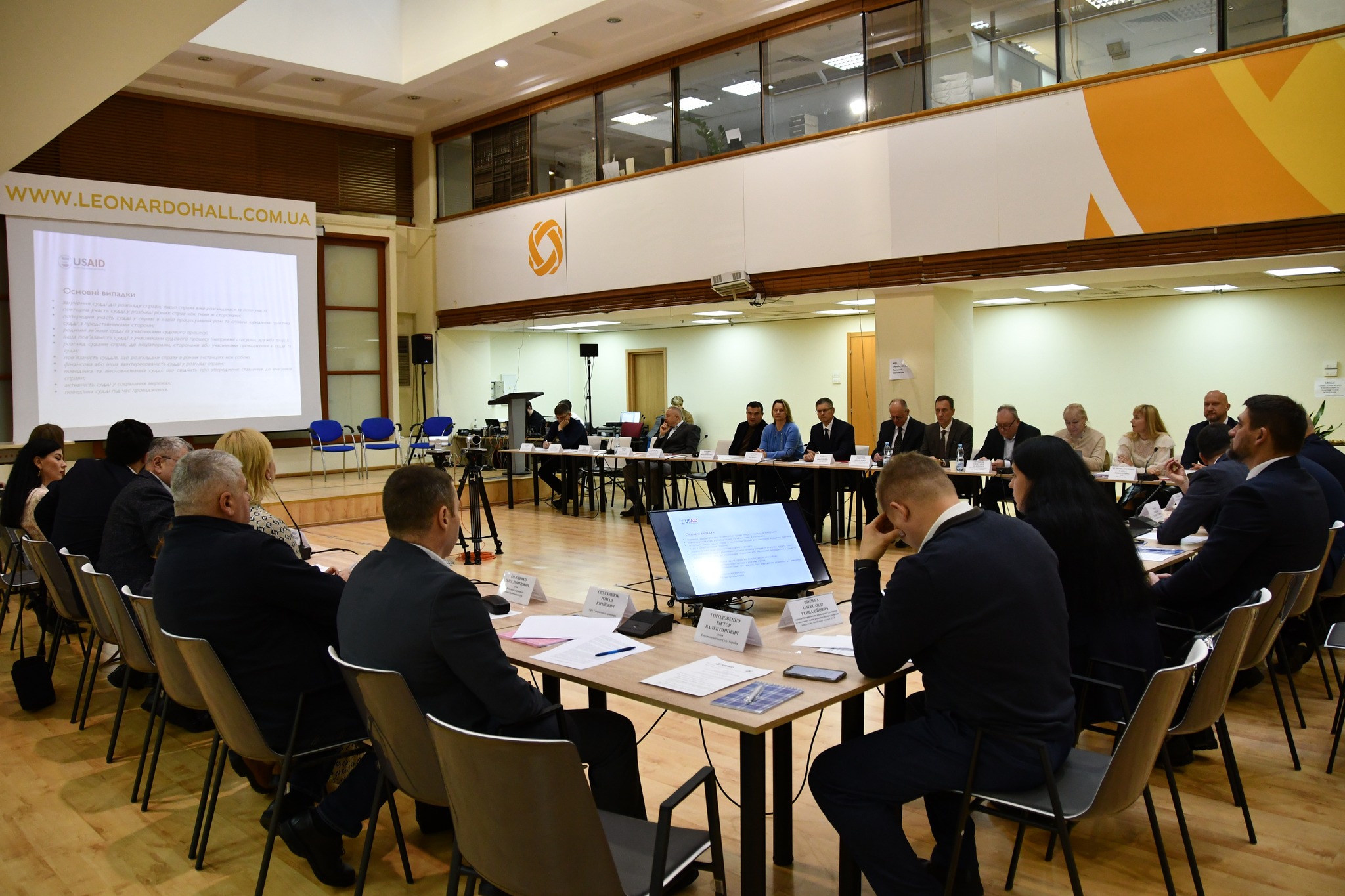Contact center of the Ukrainian Judiciary 044 207-35-46

Yehor Krasnov, Judge of the Commercial Cassation Court of the Supreme Court, and Serhii Ukhanenko, Judge of the Administrative Cassation Court of the Supreme Court, spoke about ensuring uniformity of case law in resolving conflicts of interest in the procedural and extra-procedural spheres, administrative and disciplinary liability for violations in this area, the problem of unjustified recusal, the need to speed up the provision of conclusions on possible conflicts of interest, and other issues during the presentation of the results of an expert study on the application of mechanisms for resolving conflicts of interest in the activities of judges, conducted with the support of the USAID Justice for All Programme.
Yehor Krasnov, who is also the Chairman of the Committee of the Council of Judges of Ukraine on Ethics, Prevention of Corruption and Resolution of Conflicts of Interest, noted that the COJU has paid and continues to pay much attention to the resolution of conflicts of interest and various ethical issues. He recalled that the XX Regular Congress of Judges of Ukraine on 18 September 2024 had adopted an updated version of the Code of Judicial Ethics (it provides for more significant restrictions on the observance of ethical standards by judges both in the administration of justice and in extrajudicial conduct), which should help to increase public confidence in the judiciary.
In particular, the speaker drew attention to the fact that the conclusions of the presented study, in particular, recommended:
The study also notes that different interpretations of the concept of real and potential conflicts of interest in the practice of the COJU, the NACP, the HCJ and the courts lead to a lack of legal certainty and sometimes to conflicting conclusions by these bodies when analysing the presence or absence of a conflict of interest in a particular case.
The speaker noted that cases of administrative liability due to a conflict of interest are not (and should not be) reviewed by the Supreme Court, whose main task is to ensure unity and consistency of jurisprudence. At the same time, the judge noted that even at the appellate review stage, such cases are rare: only 5-7% of first instance decisions in such cases are appealed to the appellate courts. Therefore, court practice can vary. However, Mr Krasnov emphasised that this does not mean that there are no other ways to ensure uniformity of case law. These issues should be discussed at meetings, roundtables and conferences with the participation of judges of all instances. And where there is best practice in a particular area in the consideration of relevant cases, it should be discussed and disseminated to other courts. Such an approach will provide opportunities to ensure consistency of approach. The positions of the COJU and the NACP will also help courts to adopt the same approach.

In addition, the study recommends the development of a manual on the uniform interpretation of the issue of judicial impartiality/unbiasedness with the joint participation of the COJU, the HCJ and the NACP. This issue is an important component of ensuring the right of litigants to a fair trial by an independent and impartial court and is resolved, on the grounds provided by procedural law, solely by the institution of self-recusal/recusal of a judge and separation from cases of conflict of interest outside the judicial process in the course of administrative activities.
In support of this idea, Yehor Krasnov spoke about the importance of preparing a manual that would summarise practice with reference to specific situations.
With regard to the procedural conflict of interest (which may arise in a judge's activities while administering justice in a particular case), the speaker noted that if a judge is brought to administrative liability (which is actually a corruption offence), the HCJ has no choice but to dismiss such a judge. Therefore, Mr Krasnov supported the view that the relevant offence should be subject to disciplinary liability and that the HCJ should have the discretion to apply the type of disciplinary liability. "The role of the HCJ in dismissing a judge cannot be technical," he said.
The speaker also said that the CCJE's opinion on the disciplinary liability of judges was being prepared for discussion. A separate section is expected to state that such liability, such as dismissal, is a last resort.
The issue of unjustified dismissal was raised at the event. Yehor Krasnov noted that, unfortunately, judges and parties do not always distinguish between a conflict of interest and the doubts of an outside observer. More attention should be paid to this issue in order to avoid unjustified recusal. In any case, he stressed, professional judges must be resistant to influence.

Serhii Ukhanenko noted that the study and its discussion concern the responsibility of a judge, but this responsibility is preceded by reporting: every year judges submit declarations of integrity. This year, when filling in such declarations, many questions arose regarding the filling in of the sections "Cases of potential or real conflict of interest" and, accordingly, the possibility for the judge to take appropriate measures. At present, there are no clear explanations from the HQCJ of Ukraine on these issues. Therefore, the speaker noted, it would be advisable to invite representatives of the Commission to further discuss the issue of conflict of interest at various levels.
The judge supported the idea of joint statements of the COJU and the NACP on conflict of interest issues and pointed out the need for more timely consideration of such issues.
The event was also attended by Lev Kyshakevych, Judge of the Grand Chamber of the Supreme Court, and Zhanna Melnyk-Tomenko and Volodymyr Kravchuk, Judges of the Administrative Cassation Court of the Supreme Court.
For reference. The author of the expert study is Tetiana Tsuvina, USAID Justice for All Program expert.
The purpose of the study is to analyse the mechanisms for resolving procedural and non-procedural conflicts of interest in the activities of judges, as well as to study the consequences of violating the rules for resolving conflicts of interest in the context of disciplinary and administrative liability of judges in Ukraine.
